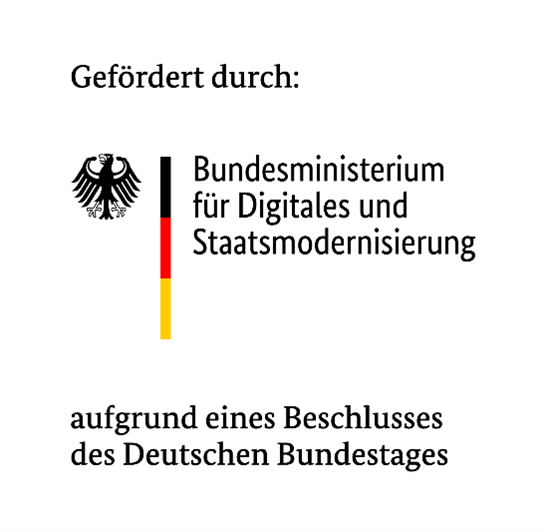Better forecasts
Using mobile phone data for traffic and mobility planning: NeDaMo research project launched

Graphic Federal Statistical Office, Wiesbaden
The aim of NeDaMo is to provide better data-based forecasts for federal transport infrastructure and mobility planning. Where and how should infrastructure be expanded? Which investments should be prioritised? In order to answer such questions in a well-founded manner, a reliable, up-to-date and small-scale differentiated database is required.
Mobile data as an opportunity - still with limitations
Mobile phone data is a promising source for finding out which routes are used and how often. Almost everyone uses a mobile phone, which means that movement data is available in aggregated and anonymised form. However, there are still considerable limitations: The customer structure of mobile network operators differs systematically, market shares vary depending on the population group, and methodological and legal issues are still unresolved.
As a result, mobile phone data is currently only suitable for direct mobility estimates to a limited extent. Further research is needed before they can be widely utilised.
Linked data sources for reliable forecasts
This is where NeDaMo comes in: Together with partners from the mobile communications sector such as Deutsche Telekom GmbH as well as Teralytics GmbH, the state statistical office IT.NRW and the statistics department of the Federal Employment Agency, the project is developing new methodological approaches.
The aim is to combine digital data with traditional official sources and to develop new statistical procedures for improved data utilisation. The aim is also to determine which mobile phone data can be provided in a standardised way in future and used for better traffic route planning. At the same time, the new procedures should also reduce the need for surveys - a gain for data quality and a relief for the population.
The University of Wuppertal (Department of Freight Transport Planning and Transport Logistics) is contributing its expertise in the field of process data analyses (GPS-based floating car data) to the project in order to obtain mobility information. The aim of the work at the University of Wuppertal is to develop a quality concept for mobile phone data analyses together with the statistics experts at the Universities of Trier and Bamberg, which consists of application-related quality requirements and standards.
The aim is to make it easier for data users in planning institutions to define their quality requirements for mobile phone-based mobility data and to negotiate with data providers. In this way, the opportunities and limitations as well as the prerequisites for the utilisation of mobile data will also be explored.
Further information on the project can be found in the profile
About the mFUND funding programme of the BMDS
As part of the mFUND funding programme, the Federal Ministry for Digital Transformation and Government Modernisation (BMDS) has been supporting research and development projects relating to data-based digital innovations for the mobility of the future since 2016. The project funding is supplemented by active professional networking between stakeholders from politics, business, administration and research and the provision of open data on the Mobilithek. Further information can be found at www.mfund.de.


